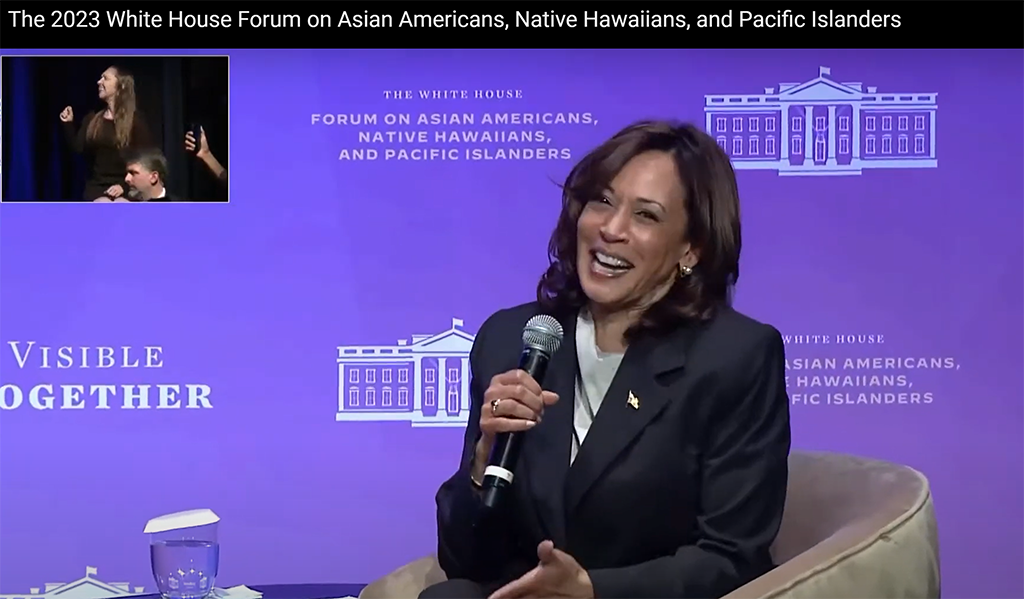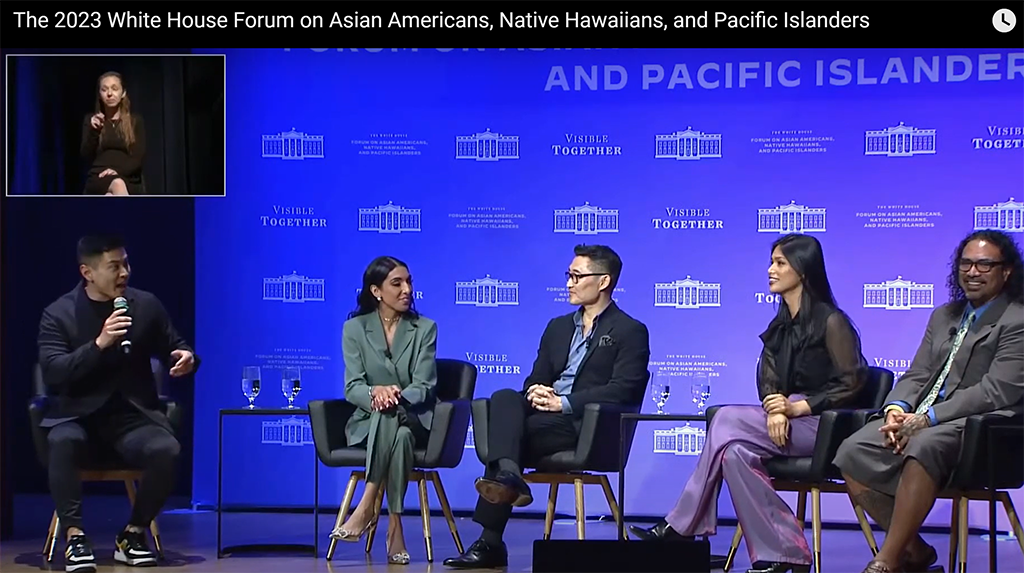The Biden-Harris administration hosted a White House forum at George Washington University on May 3 in honor of Asian American Pacific Islander (AAPI) Heritage Month.
The daylong event featured panels with industry experts and politicians including a discussion with Vice President Kamala Harris. The forum drew more than 1,300 attendees and was themed “Visible Together.”
The first two panels discussed mental health—the intersectionality of AAPI culture and mental health, including the pressure placed on AAPI children to succeed, and the need to expand the behavioral health workforce to be more culturally competent and diverse,
Vice President Harris discussed her Indian American heritage and actions the Biden administration has taken to protect AAPI communities from gun violence in a discussion moderated by Jerry Won, CEO of Just Like Media, and Poorna Jagannatha, an actress who stars in Netflix’s “Never Have I Ever” TV show.
Harris said being raised in a family and community where there was a “real fight” to uphold the importance of independence and identity is part of her story. Harris said there has been a “horrendous rise” in hate crimes toward Asian communities and that the Biden administration has passed smart gun safety legislation when asked about what the administration has done to protect AAPI communities from gun violence. She said the administration has “more to do” and advocated for a national assault weapons ban, background checks, and red-flag laws.
Poet Rupi Kaur, actor Daniel Dae Kim, producer and transgender rights advocate Geena Rocero, and CEO of Hawaiian creative firm Gravitas Pasifika Aaron Sala discussed AAPI art and identity with moderator Bing Chen, CEO of the Asian creative nonprofit Gold House.
Kim said it is “really important” for people outside the AAPI community to continue their support of Asian American art, citing the recent success of award-winning international movies like “Parasite,” and “Everything Everywhere All At Once.”
The full list of speakers and performers can be found on the White House forum website.






I was delighted to learn about the White House’s AAPI (Asian American and Pacific Islander) Forum through your article. It’s encouraging to see the government recognizing and engaging with the AAPI community, fostering dialogue, and addressing the unique challenges and opportunities that this vibrant and diverse community faces.
The White House’s AAPI Forum serves as an important platform for raising awareness of AAPI issues and concerns, as well as amplifying the voices of the AAPI community. This forum provides an opportunity for community leaders, activists, and policymakers to come together, share insights, and collaborate on initiatives that promote inclusivity, equity, and empowerment.
It is crucial to acknowledge and address the diverse needs and experiences within the AAPI community. By facilitating these discussions, the White House demonstrates its commitment to understanding the unique challenges faced by different AAPI groups and working towards inclusive policies that uplift all members of the community.
Furthermore, the AAPI Forum serves as a catalyst for change, highlighting the contributions of AAPI individuals to various sectors, including business, arts and culture, technology, healthcare, and education. By recognizing and celebrating these achievements, the forum promotes a more accurate and comprehensive narrative of the AAPI community’s impact and potential.
Engagement and dialogue between the AAPI community and government officials are vital in shaping policies that advance social justice, equality, and representation. Through platforms like the AAPI Forum, the government can gain valuable insights and perspectives that inform decision-making processes, resulting in more inclusive policies and initiatives.
I commend the White House for organizing the AAPI Forum and creating a space for open and constructive dialogue. I hope that this event serves as a starting point for continued collaboration and engagement between the government and the AAPI community, leading to positive and impactful changes that address the unique needs and aspirations of AAPI individuals and communities.